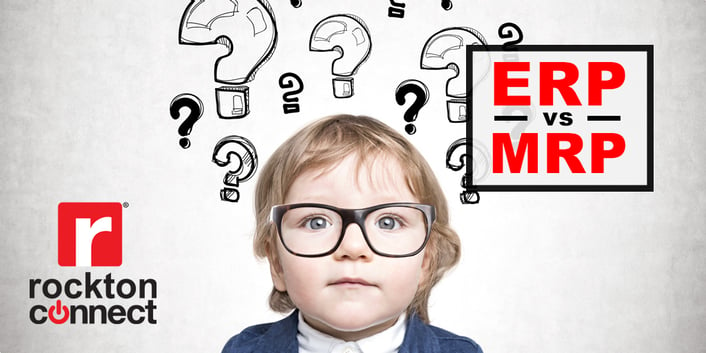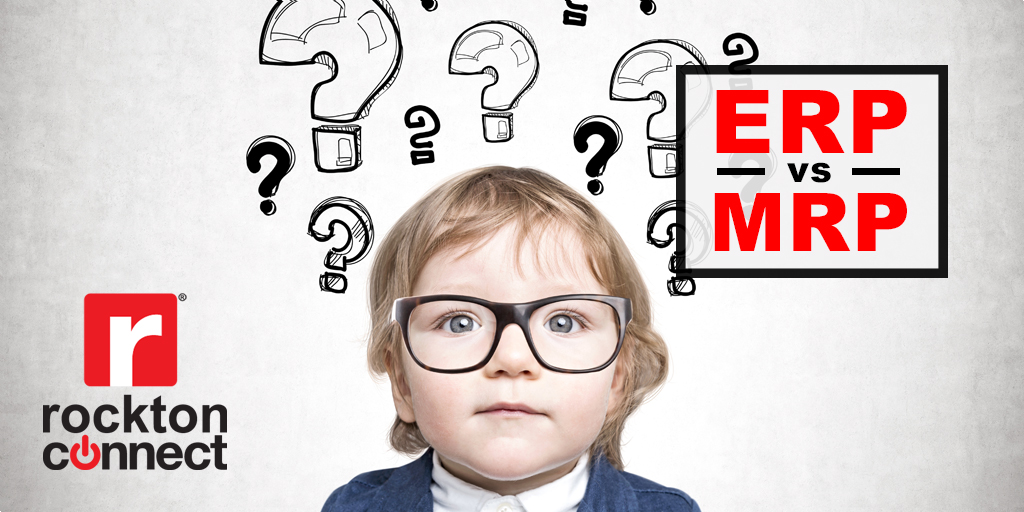
Choosing a modern ERP system for your business or enterprise is complicated enough, especially when there are so many acronyms and features to filter through. Two options you may have heard of are ERP and MRP. Both software solutions have their advantages, but choosing between the two could be the difference between falling short and overkill.
What’s the difference?
So, now that you know both ERP and MRP exist, what’s the difference? Let's take a look at ERP vs MRP.
When it comes to ERP, think big picture. A proper enterprise resource planning solution focuses on a broad range of business processes, ranging from inventory to human resources. The capabilities of ERP stretch beyond just manufacturing, and can be a game changer for ecommerce and distributors, alike.
Materials requirement planning (MRP) is a bit simpler and more straightforward in its purpose: it measures the necessary quantity and scheduling of production materials for manufacturing efficiency. MRP zeros in on the manufacturing process and can be beneficial when attempting to gain insights and increase profitability by way of inventory management.
Which is right for my business?
Knowing which solution is the right fit for your business requires exploration of one simple question: how much integration do I need?
Let’s say you have a manufacturing warehouse where you produce widgets for several local businesses. The number of orders for these widgets fluctuate based on the business, the time of year, and a small rate of growth associated with each over time. Your goal is to make sure you have the right number of inventory units (not too much, but not too little) just-in-time to deliver the completed widgets to your customers, without breaking the bank or fronting more of the cost than you need to. You don’t need all the bells and whistles to integrate other business functions – you need an MRP.
Now, let’s say that manufacturing is just one aspect of your business. You need to keep track of everything from inventory to production to delivery to your end customer. You may be in the market for an ERP, which is an ideal option for businesses evolving from starter-shop to enterprise level. An ERP allows you to bring data management, workflows, and third-party integrations together for when you need to get more done autonomously and have those systems communicate effortlessly.
Here are two additional points to consider when weighing the pros and cons of each system:
- How many users need access to the system? With a standalone MRP, there’s usually a low limit on the number of accounts allowed. However, because an ERP spans a broad range of departments and processes, it’s standard to have access to an unlimited number of user accounts at no additional cost.
- How much planning can you afford? Each planning system comes with an array of features, and its own price tag. However, it’s no secret that an ERP is usually the more expensive option to implement. The value and cost per use will depend entirely on how many of the features your business is able to use and take advantage of. The comprehensiveness of an ERP may establish the worth of the initial investment; however, if you find that you’re paying for more functionality than you’re using, an MRP may prove to be more your speed.
How do I get started?
Remember: although some aspects of ERP and MRP are similar, you should always consider your business needs in terms of the level of integration, number of users, and cost. Over at Rockton Connect, we’re the ERP experts (with over twenty years of experience to back that up). So, if that’s the direction your business is headed in (or, you still need a little help in figuring that out), we’re your partner!

